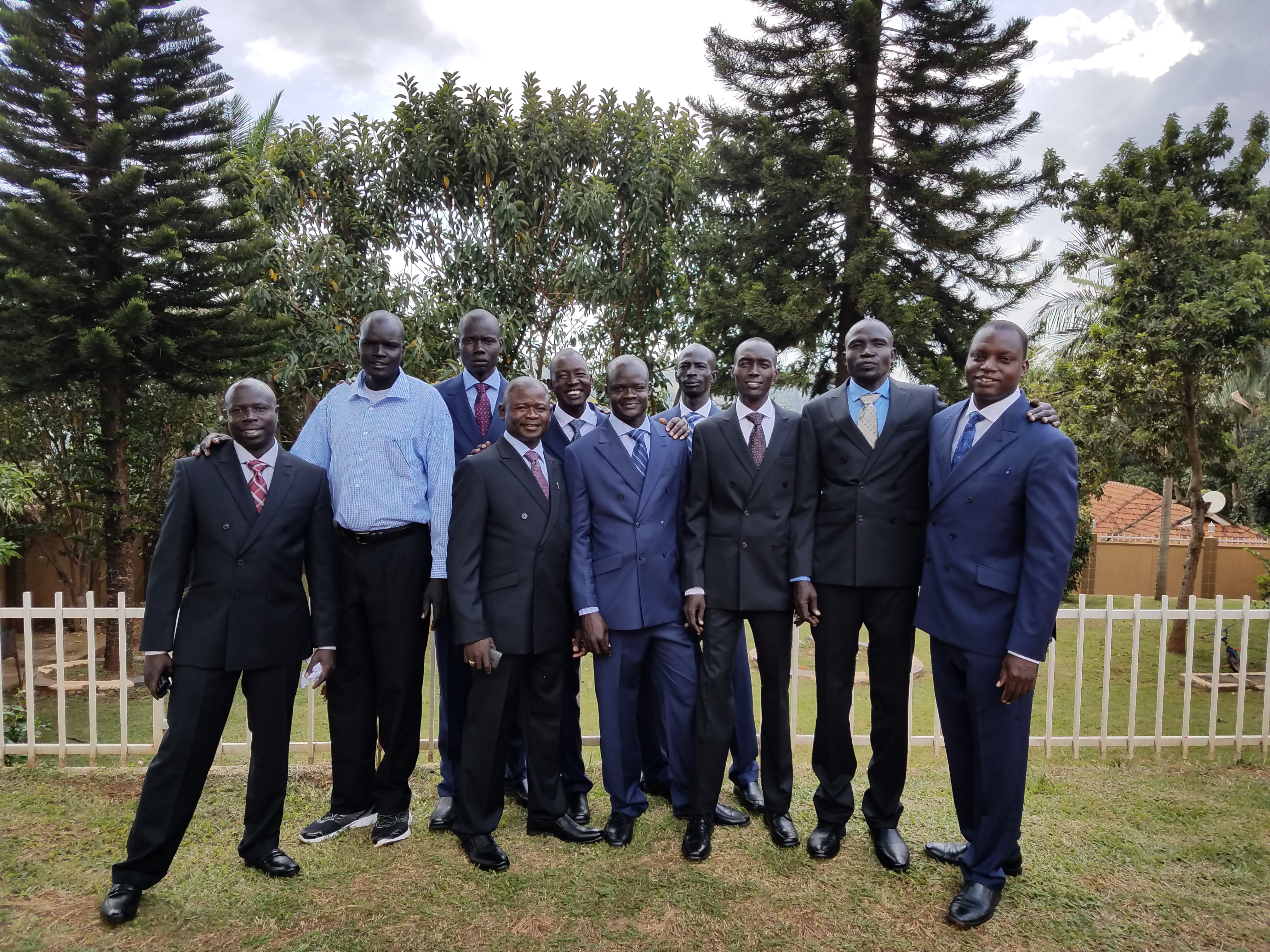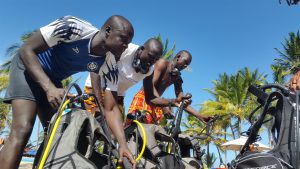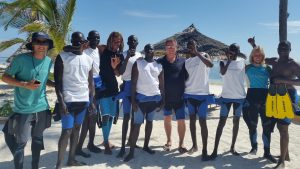
FRM Newsletter
June 2017: Twenty Lions and Enemy Ambushes
View the full June 2017 Newsletter here.
I sent for ten chaplains from the frontlines to go to dive school in Tanzania. You may wonder why there is a need to send our men to dive school when we are in a landlocked nation. But in our village, two or three individuals a year are taken by crocodiles. Killing the croc is easy, but recovering the body, especially a child’s body, is extremely important to a grieving family. Parents need to hold and bury their loved ones so that they can have closure and let go. Also, during the war, the enemy sent attack boats down the Nile and devastated villages. Diving gives us the ability to put obstacles in the water should this become a necessity to prevent an attack—minimizing the reach of the enemy. Beyond this, we strive to train our men to be the best in the South Sudan Army, even above their recognized Special Forces. Our chaplains train harder, longer, and in more ways, than even their special forces. When men are battle-hardened soldiers, they often will not listen unless you are better trained than they are. Our men have earned the right to be highly respected because they have been better trained than all others. Even the most hardened soldier will listen when the chaplains speak.
This year, we are also taking 20 of the chaplains to jump school, so we can drop them into areas that are not accessible by roads, which is often. By training them to parachute, we can drop them into their units with minimal casualties.
Two of the men I sent for were Joseph Maker and John Pech. Had I known what they would have to go through to get to our base, I would have delayed their coming. Their unit was along the Darfur border, which is an extremely dangerous place to be stationed. The men told me that no food supplies could make it to them, so they had to hunt wild animals and cultivate to survive. John said that nine men in his unit died of starvation. The men would hunt for their food all day, un til they had killed enough to feed their unit. It was such a problem that the men were only given one meal a day unless they were in combat, patrolling or hunting. Since the men were only fed once a day, the men slept and rested most of the time so they would not waste calories.
til they had killed enough to feed their unit. It was such a problem that the men were only given one meal a day unless they were in combat, patrolling or hunting. Since the men were only fed once a day, the men slept and rested most of the time so they would not waste calories.
When the men received word to report for dive school, they obeyed orders. Later, John said that they were ambushed three times on the way and had to fight the enemy for over two hours each time. This part of Sudan is wild, untamed and very deadly. He told us that the wildlife was also extremely aggressive. In this part of the world, if you let your guard down, just about everything will kill you—sleep in the wrong place and you will be eaten.
John said that before the roads were closed because of enemy ambushes, the few vehicles that did bring food, were often attacked by lions or wolves. Now folks, there are no wolves in this part of Africa. I believe that this is the word that they use in Arabic to try to describe an animal that I have never seen but have heard of for many years. Over the years, I have been told about an animal called a gazee. Among the remote tribes, they speak of the gazee with great fear. One of the generals told me that two of his men had been killed and eaten by these animals. When I asked him what they look like, he said that they look like a cross between a donkey and a hyena. The men know what hyenas look like so this is something different. Truly, I think this animal is only found in this part of the Africa and has not been discovered by the western world.
Those who have seen a gazee, say that it is more dangerous than a lion. They told me that the men will fight lions, but they run from the gazee. This animal hunts in packs and, from all reports, are extremely dangerous and smart hunters. Joseph said that these animals will try to climb on vehicles to get food and unless you kill them, they will not stop attacking. They have been known to wait along the road to attack moving convoys.
Not only have the gazees been such a threat, but the lions have become so aggressive that they will come into the camps at night to steal the wild game that has been caught for food. The men in the unit realized that they were going to have to fight a pride of lions or soon, one or more of them would be eaten.
There were twelve lions in this pride, so the men organized themselves and went out to do battle, because the lions were not going to back down. The men realized that they were going to have to fight or die. Joseph is considered the best shot in his unit. It is known that when he fires a bullet, it always finds its mark. When the men encountered the lions, the lions were not backing down and attacked. Joseph fired his first shot and hit a large male just above the eye, but this did not slow this animal down. The lion continued his charge and Joseph said that it took two more bullets before he killed the lion. In all, the men killed six lions and wounded five others before the pride left the area. The six they killed, the men ate. Nothing goes to waste in Sudan.
When the men arrived, I wanted to further bless them by providing each with a new suit to boost their morale. I found suits at a good price in the United States, so I purchased one for each of them. When the men put their suits on, they were extremely proud to wear them. I am sure that none of them have ever had a new suit or probably any other new clothing in their lives other than their chaplain uniform. They looked great!
I wondered how they would do in dive school. It was not the swimming that concerned me, but the written part of the testing, since English is not their first language. They worked hard and all studied together, ensuring each one would pass. While this was purposeful training for them, it was a great adventure. They looked forward to the training each day.
There was a small is land off the coast, and I challenged the men to swim around it. They swam to it but not around it. They had never seen the ocean before and I think it made them afraid. One referred to it as a really big river. To prove to them that it could be done, I swam around it myself. They all came back telling Vicky, “Wes defeated us all! He is a real Marine.” It proved to the men that with training and endurance, it is possible to accomplish anything.
land off the coast, and I challenged the men to swim around it. They swam to it but not around it. They had never seen the ocean before and I think it made them afraid. One referred to it as a really big river. To prove to them that it could be done, I swam around it myself. They all came back telling Vicky, “Wes defeated us all! He is a real Marine.” It proved to the men that with training and endurance, it is possible to accomplish anything.
The conversation at the dinner table each night was encouraging. Everyone was relaxed and happy, which was a great blessing to me. As I sent the guys back to the front, I wondered how many chaplains’ lives the war will take this year. I had finished writing this newsletter by May 12th, when news came that Thomas (pictured in the center of the cover of this newsletter) was killed. Then, word came on May 16th, that another chaplain, Santos, had been shot and killed near Yei. My heart has been heavy with the loss of so many, but we will continue to press forward to win as many souls, as can be won.
Wes Bentley
Far Reaching Ministries